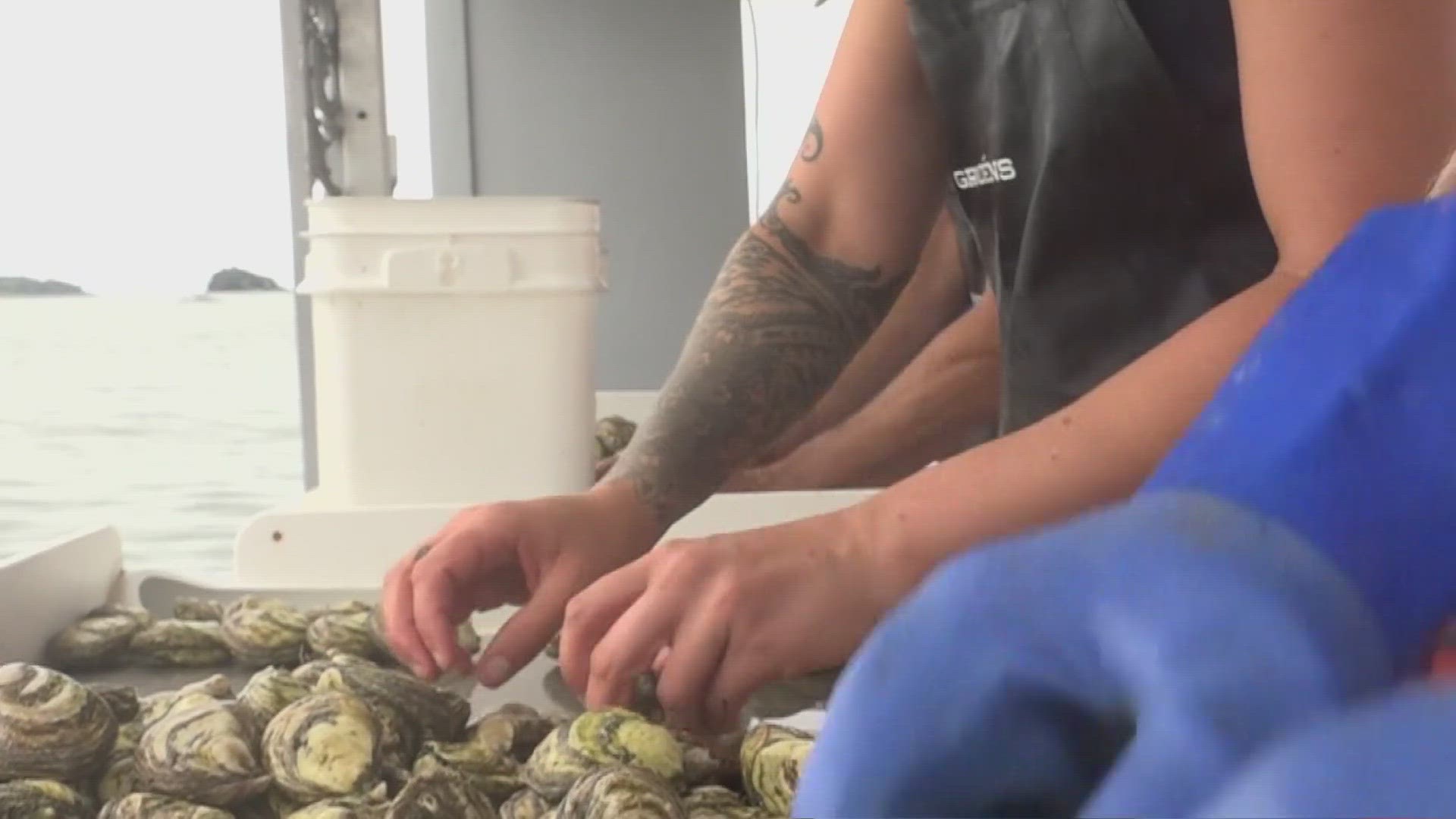SOUTH BRISTOL, Maine — Back-to-back rain and wind storms pounding the Maine coast along with a torrential storm overtaking much of the state in December sent Maine and its farmers into a hard winter of recovery.
Each time a storm rolled through, it brought a surge of water that ended up working its way through filter feeders like oysters and scallops. In many cases, the state will issue a closure of fisheries if there is enough rain.
Mook Sea Farm owner Bill Mook said oyster farmers lose money during each closure.
"We were seeing sometimes up to $60,000 during a single closure we would lose in revenue," Mook said.
But those numbers Mook mentioned are from closures from storms before 2019. That's because since then, his crew constructed an indoor holding tank, with a capacity for around a half-million oysters of harvestable size.
"We saw a lot of these closures increasing, we saw it was affecting our bottom line," Mook said.
To be clear, Mook Sea Farm is one of the largest oyster farms in the state, and the facility to hold these oysters costs around $3 million. But Mook said the same technology used to construct the facility already exists and could become more readily available in the future. He said he's even had smaller oyster farms ask to use his holding tanks in the past during storms and it has worked out.
The circulation system for the indoor facility has the ability to close itself off from the ocean water coming in from the Damariscotta River, normally rich with nutrients for oysters. But when a heavy storm rolls through and brings potential pollutants, Mook said they can still harvest the oysters that are stored indoors.
"It's one way the industry can adapt to closures," Mook said. "The challenge is being able to adapt, but ultimately, you can only do so much adaptation and there's no climate action and with no policy to curb greenhouse gas emissions. And at some point, we may have to do all our shellfish production on land, which right now, is just not feasible."
And while we may not know for certain that we will see more storms like what we saw in January every year at an increased intensity, we know climate models for Maine forecast a wetter and hotter climate. Mook said since he started farming in the 80s, storms have disrupted their harvests more each year.
"People sometimes say it's a new normal but I reject that... I say we're into a completely new territory and the normal is going to continue to be shifted very quickly," Mook said.

